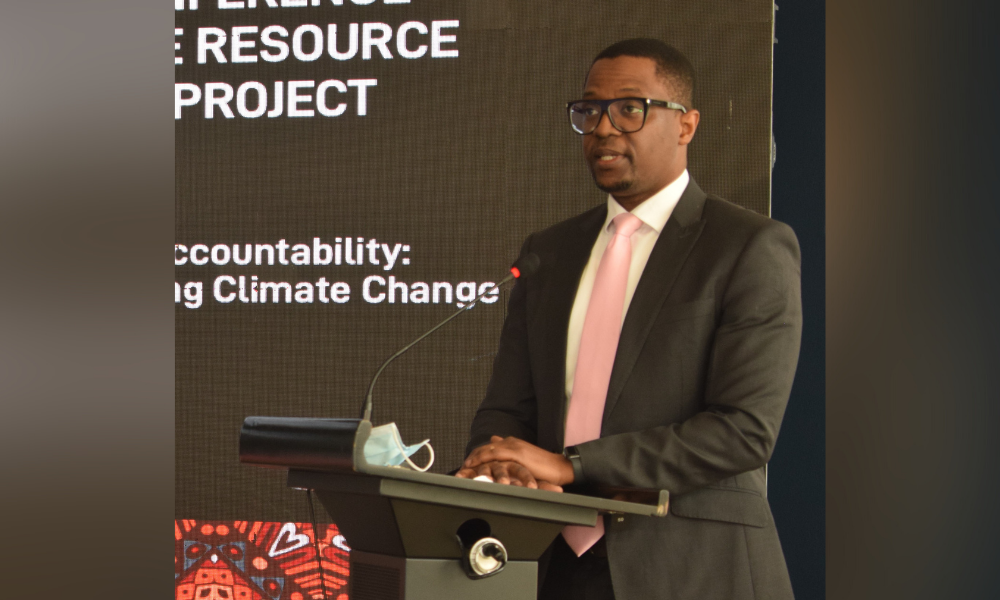Bar association program has operated in 30 countries in the last three decades

A new Canadian Bar Association project will work with Tunisian lawyers, judges and civil society to support the rule of law and advance constitutional rights in the country.
The CBA will work with the Tunisian Bar Association and various civil-society stakeholders, including the Tunisian Association of Women Judges, LGBTQ rights organizations and groups advocating for the rights of minorities and people with disabilities. Through collaboration with these organizations, they will assist Tunisian lawyers in developing capacity to litigate cases challenging unconstitutional laws, with a focus on marginalized groups. The CBA will also work directly with judges and lawyers to identify and present constitutional cases.
The project will span two years and the CBA will work in partnership with the International Development Law Organization (IDLO).
“CBA members are a passionate bunch who give up their time, and their expertise in rule of law programs around the world, and this is one that we are very proud to be involved with,” says Ayokunle Ogundipe, who is acting director of International Initiatives at the CBA and a former commercial litigator.
When Tunisian produce vendor Mohamed Bouazizi self-immolated in protest of official corruption, he sparked the Jasmine Revolution which led to the downfall of the authoritarian regime of President Ben Ali. Out of the revolution grew the 2014 Constitution.
The Constitution established an “advanced set of rights,” and provisions for judicial independence and separation-of-powers to protect them, says Ogundipe.
“The Constitution creates equality rights for the first time in Tunisia… It captures the spirit of democracy: checks and balances, free and independent legal institutions. And it provides a platform for the repeal of a lot of the outdated laws that are still on the books.”
The Constitution also created a Constitutional Court, which has yet to be established, but will provide an “avenue for social justice” for Tunisians, he says.
“We intend – and our colleagues in Tunisia intend – to use the constitutional court as a mechanism to advance basic fundamental human rights, which are given lip service presently, but the benefits of those rights don't trickle down to the Tunisian people,” says Ogundipe.
The CBA’s Tunisian project is taking place as Tunisian President Kais Saied dismantles many of the country’s democratic institutions and international rights organizations raise concerns of human rights violations in the country.
Saied, who is a former constitutional law professor, dissolved parliament on April 4. He had suspended it, dismissed the Prime Minister and assumed executive authority last July.
This latest decree followed his move in February to shut down Tunisia’s High Judicial Council, an oversight body intended to protect judges from government interference. Last September, the President also suspended most of the Constitution and granted himself the power to govern by decree.
According to Amnesty International, Tunisian authorities have been increasingly violating judicial procedures “to impose arbitrary travel bans, house arrests and detentions on Tunisians, including judges and political figures.” The government is also using military courts to investigate and prosecute civilians, Amnesty said.
Human Rights Watch’s “Universal Periodic Review Submission on Tunisia,” published March 30, detailed some of the “serious human rights violations” occurring in the country. These include “torture, violence against women, violations of LGBT rights, lack of accountability for past human rights violations, arbitrary house arrests, and travel restrictions under the state of emergency.” President Saied’s actions last year have weakened government institutions and “halted the country’s democratic transition,” said HRW.
“The legal profession, in any jurisdiction, is always the body that advocates for reform, and it’s always the body that advocates for the rule of law to be respected,” says Ogundipe.
Whether Saied honours constitutional obligations and checks and balances, he says the CBA’s training will provide the Tunisian legal community with the tools necessary to advocate for the rule of law. “The rule of law will take whatever shape the Tunisian people decide.”
The CBA’s International Initiatives program’s aim is to export the values of rule of law and access to justice to developing countries and transitional democracies, says Ogundipe. In the last three decades, it has worked in 30 countries, including Africa, Eastern Europe, the Caribbean and Latin America.
South Africa’s Constitution just celebrated its 25th anniversary. At its birth the CBA had partnered with various organizations in that country to support the establishment of a constitution that would be “democratic, fair and just” and would “set the tone for equality rights,” says Ogundipe.
“We're hoping that when the Tunisian Constitutional Court is established, we will be able to have a similar positive impact on the rule of law that jurisdiction.”
The CBA and the IDLO also collaborate on the Young Lawyers International Program, which sends young lawyers to work with human rights organizations in countries including Myanmar, Kyrgyzstan and Ukraine.










